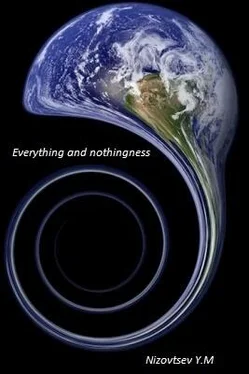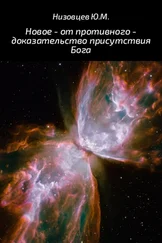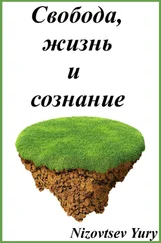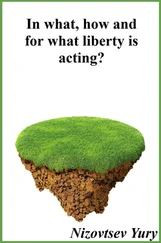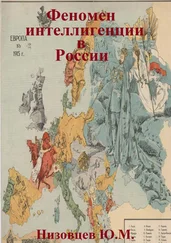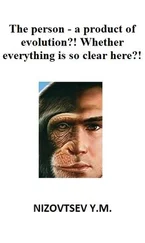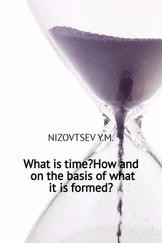Юрий Низовцев - Everything and nothingness
Здесь есть возможность читать онлайн «Юрий Низовцев - Everything and nothingness» — ознакомительный отрывок электронной книги совершенно бесплатно, а после прочтения отрывка купить полную версию. В некоторых случаях можно слушать аудио, скачать через торрент в формате fb2 и присутствует краткое содержание. Издательство: Array SelfPub.ru, Жанр: Философия, История, История, История, beginning_authors, Философия, Биология, Химия, Математика, Физика, Религиозная литература, Религиозная литература, на русском языке. Описание произведения, (предисловие) а так же отзывы посетителей доступны на портале библиотеки ЛибКат.
- Название:Everything and nothingness
- Автор:
- Издательство:Array SelfPub.ru
- Жанр:
- Год:неизвестен
- ISBN:нет данных
- Рейтинг книги:5 / 5. Голосов: 1
-
Избранное:Добавить в избранное
- Отзывы:
-
Ваша оценка:
- 100
- 1
- 2
- 3
- 4
- 5
Everything and nothingness: краткое содержание, описание и аннотация
Предлагаем к чтению аннотацию, описание, краткое содержание или предисловие (зависит от того, что написал сам автор книги «Everything and nothingness»). Если вы не нашли необходимую информацию о книге — напишите в комментариях, мы постараемся отыскать её.
Everything and nothingness — читать онлайн ознакомительный отрывок
Ниже представлен текст книги, разбитый по страницам. Система сохранения места последней прочитанной страницы, позволяет с удобством читать онлайн бесплатно книгу «Everything and nothingness», без необходимости каждый раз заново искать на чём Вы остановились. Поставьте закладку, и сможете в любой момент перейти на страницу, на которой закончили чтение.
Интервал:
Закладка:
In contrast to the lower consciousness of the living beings without self-consciousness, the higher consciousness of the person is characterized primarily not by mind, which is inherent in all living things in one form or another as centers that process information, incoming from sensations, but by awareness of yourself itself, which implies not just the adoption of the information from sensations and more or less adequate reaction to it, but and the subsequent conscious change of everything that manifests before him and in him.
For this purpose the consciousness in the person has a set of means: imagination, extensive databases, human interaction, intellection of all its forms, purposeful skilled verification of the arriving information, formulation and consolidation of regularities, deduced on the basis of experience and logical processing of information, aspirations for the new, the unknown, producing upheavals in life on the basis of inventions and utilization of fundamental discoveries, etc.
Therefore the habit characteristic only for the layman, who muffles aspirations of own consciousness to the unknown, who prefers to live within already the tested, but not for not strangled consciousness, who always seeks to overcome any circumstances at any cost.
Following Berkeley, Avenarius, denying existence independent of human consciousness reality, believes in this regard that truth is not compliance of consciousness to objective reality, but it is a result of coincidence of the perception of the majority, consistency of data, aspiration to integrity of system of data or as the coherence of sensations: “Here we only noted aspiration for a higher unity, because in it lurks the aspiration to think in the concept of a coherent whole. We could note this fact and on dualism, so as after all its division of the world into two opposites testifies to the thinking, which is addressed to integer; but we thought that the aspiration to finite, higher unity better expresses the need thinking of the totality of things, as understood" [3, §39]; “The final result of our analysis concurs—although not absolutely (durchgehend) in the measure of the various points of view—with that reached by other investigators…” [12, p. 120].
Hegel also joins the aforementioned thinkers in relation to the absolute truth. If we recall the definition of the absolute, which has gave Hegel, namely: “The absolute is the unity of subjective and objective … whereas in fact subjective and objective after all not only are identical but also different” [13, p. 116], then the absolute neither in the current life, nor in thinking can't be.
In terms of the interaction of consciousness and things, identified by consciousness, process of deepening of consciousness in the thing depends on the level of consciousness, which can understand the essence of thing only in accordance with it, moving ahead, for example, from the general concepts "heat" and "cold" to laws of molecular motion in different environments.
Therefore it is inadequate to consider that each step in the knowledge is the absolute truth, moreover it is possible to go deep into the thing infinitely not only because nobody knows its depth but also because consciousness itself changes "jumping" from one level of development on another where things appear before him in other appearance and obey to other regularities.
Perhaps that is why the oldest religion on Earth – Hinduism – stated: truth cannot be expressed because of its diversity.
And contemplative in its essence Buddhism, by contrast, thought that truth is revealed in front of each of your gaze.
It was shown above how difficult to object to both.
Be that as it may, but practical advance of mankind both in technical, and in moral the relations show that coincidence of aspirations of people with cognizable by them to the main natural and public regularities in refraction them to the solution of practical tasks lead actions of people to real achievements. Means, truth nevertheless exists!?
But really truth has only relative, banal or pragmatic character? Perhaps, there is aught beyond the current reality which nevertheless can be understood intuitively and added to the few fundamental truths.
It seems that to approach to decision of this problem is only possible due to clarify the correlation of such categories as beingness, consciousness, information.
1.2. The active and the passive in the unity and a division
Beingness in the usual formulation is existence of things. However in our opinion, this understanding is not enough, because to explain this existence as a separate is impossible.
Therefore God arises inevitably for some – divine source and the prime propulsor of these things (the real).
The opposite camp as opposed to this view puts forward a hypothesis of self-development of matter.
Both aren't represented by satisfactory interpretations of existence of the real.
As for God, this omnipotent, live, external and infinite being is so contradictory and fantastic, that it is only possible to believe in him from hopelessness, that and happening. More in details on these and other properties of God we will stop below.
If to present matter in the form of some formation which itself moves and always was in motion, and in this motion it forms else, including consciousness, then, firstly, if to prove that motion is visibility, or rather, motion is secondarily, appearing only owing to technical transformation of process of updating of copies of things in consciousness of living beings in motion, then self-development of a matter does not exist. Secondly, it has long been proven, that the genome of any living being is so complex that a self-assembly, self-development is impossible for it. However, the living beings exist and there are even the living beings, conscious of themselves, i.e. the people themselves. Thirdly, inasmuch it is recognized that self-development is the ongoing progressive process, then it must have initial and final conditions.
All it means that thinkers of all ages have underestimated the complexity and ambiguity of the next factor: who we – the people – such in truth, as well as in what we are situated.
However, Parmenides tried to prove that beingness is one thing, that there is no motion in it , there is no origination and destruction: “… it is universal, existing alone, immovable and without end; nor ever was it nor will it be, since it now is, all together, one, and continuous” [14, p. 37-39]. Regarding the world in which we are, then he put it so: “It is necessary to say and to think that What Is is; for it is to be,/ but nothing it is not. These things I bid you ponder./ For I shall begin for you from this first way of inquiry,/ then yet again from that along which mortals who know nothing/ wander two-headed: for haplessness in their/ breasts directs wandering understanding. They are borne along/ deaf and blind at once, bedazzled, undiscriminating hordes,/ who have supposed that it is and is not the same/ and not the same; but the path of all these turns back on itself” [14, p. 37-39]. That is, he believes this world is the seeming world of opinions and senses.
It is necessary to tell that Parmenides's idea about beingness as the uniform, the eternal and the motionless, which seems absurd, actually can explain a lot of things in existence, if to assume that the except eternal, infinite Uniform there is not seeming, but quite the material, real world in time which is united indissolubly with the eternal Uniform in a certain sustainable system, both components which support each other.
To assume this, of course, possible, but it would be desirable to receive the answer to a question: how functions this system.
Beingness, if to see under it everything existing, or existing things, can't be manifested in absence of consciousness in any way. In other words, if the consciousness was not, as such, then and beingness there would not be – there would be nothing. This fact is, apparently, the primary cause of the appearance in human consciousness of the concept of God-creator.
Читать дальшеИнтервал:
Закладка:
Похожие книги на «Everything and nothingness»
Представляем Вашему вниманию похожие книги на «Everything and nothingness» списком для выбора. Мы отобрали схожую по названию и смыслу литературу в надежде предоставить читателям больше вариантов отыскать новые, интересные, ещё непрочитанные произведения.
Обсуждение, отзывы о книге «Everything and nothingness» и просто собственные мнения читателей. Оставьте ваши комментарии, напишите, что Вы думаете о произведении, его смысле или главных героях. Укажите что конкретно понравилось, а что нет, и почему Вы так считаете.
